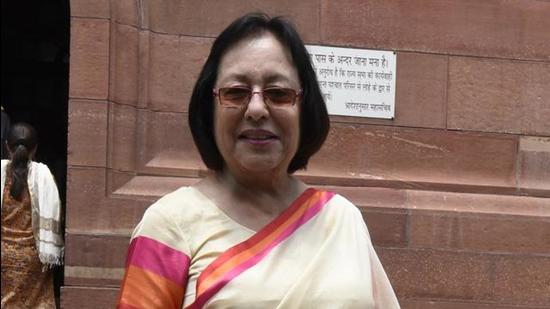
The
ministry of home affairs handed over the probe to the NIA last week
after which the agency has registered a case under UAPA, explosive
substances act as well as attempt to murder
The National Investigation Agency (NIA) has taken over probe into the grenade attack outside Manipur Governor Najma Heptulla’s official bungalow in Imphal in January this year after initial investigation revealed that it the attack was carried at the behest of Myanmar-based commanders of United National Liberation Front (UNLF), people familiar with the development said.
The ministry of home affairs (MHA) handed over the probe to the NIA last week after which the agency has registered a case under Unlawful Activities Prevention Act (UAPA), explosive substances act as well as attempt to murder.
A Chinese made grenade was lobbed at the security personnel deployed at Raj Bhavan on January 19 around 4.30pm by two bike-borne suspects. Nobody was injured in the incident. Manipur police arrested three persons in the case – Lisham Iboshana Meitei alias Jojo, Konsam Manithoi Singh and Huidrom Sangba, all having links with the banned outfit UNLF.
The central intelligence agencies believe that the attack was planned in Myanmar after which the cadres were activated here in Imphal.
NIA officials familiar with the case said they will take custody of the three arrested UNLF members and ask them about those who gave them directions for the attack.
Even as Indian government is holding peace talks with most of the insurgent groups from the north-east, several commanders of outfits like UNLF have been hiding in Myanmar. UNLF chairperson Rajkumar Meghen was released from Guwahati Central Jail in November 2019 after serving a decade-long sentence.
The central anti-terror probe agency has investigated several cases related to north-east insurgent groups in the last 11 years and has secured conviction against several ultras.
As reported by HT on March 2, insurgency-related incidents in the northeastern (N-E) states have dipped by 80% and civilian deaths by 99% in 2020 compared to 2014, according to MHA data. The deaths of security forces’ personnel also came down by 75%.
Several officials and experts said that fewer insurgency-related incidents in the N-E was due to majority of insurgent groups, including the National Socialist Council of Nagaland (NSCN) and its factions, having signed ceasefire agreements with the government. They added that regional diplomatic cooperation between India and neighbouring countries, including Bangladesh, Bhutan and Myanmar, have denied insurgents safe havens. Also, economic development in the region and movement of people to the mainland for job opportunities has resulted in the dip in violence.







0 comments:
Post a Comment